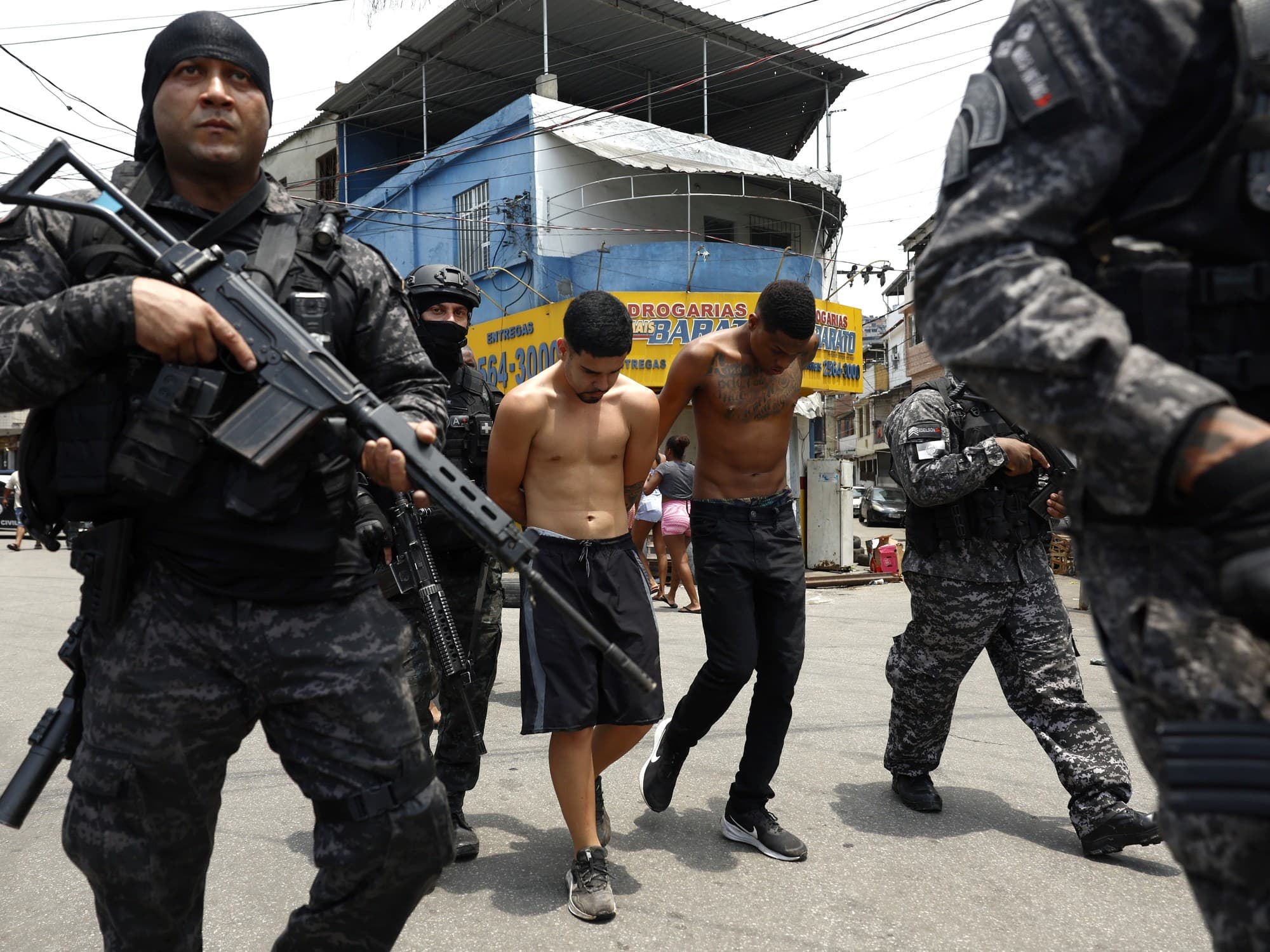The First Command of the Capital (PCC) and the Red Command (CV), the two largest Brazilian criminal groups, are waging a bloody war for control of drug trafficking in Brazil, a market that, according to experts, moves more than 5.3 billion dollars annually.
These factions, as criminal gangs are known in Brazil, are sometimes bitter enemies, responsible for battles involving homicides, beheadings, and torture. However, they also act as circumstantial allies to reduce logistical costs in transporting drugs and weapons. Their main centers of operation and recruitment are the country's overcrowded prisons.
The Comando Vermelho (CV) is one of Brazil's oldest and most well-known criminal organizations, with origins in the 1970s in the prisons of Rio de Janeiro. Initially, it emerged with the aim of defending the basic rights of prisoners and establishing a"mutual aid society".
The group quickly transformed into a powerful criminal organization, becoming involved in drug trafficking, bank robberies, and other crimes. For years, it was the most powerful organization in Rio de Janeiro and, by 1990, controlled 90% of its favelas. It is common to see the streets of many of these communities labeled with the acronym"CV."
 Bloody people in the back of a police truck being taken to Getulio Vargas Hospital in Rio de Janeiro. AP Photo
Bloody people in the back of a police truck being taken to Getulio Vargas Hospital in Rio de Janeiro. AP Photo
Although the CV was a dominant force, its power has been challenged and weakened. This is due to police action, the arrest or death of its leaders—such as Luiz Fernando da Costa ("Fernandinho Beira-Mar") and Márcio dos Santos Nepomuceno ("Marcinho VP")—and, fundamentally, the emergence of rival factions.
Among the main competitors are the Primeiro Comando da Capital (PCC) from São Paulo, the Terceiro Comando Puro (TCP), and Amigos dos Amigos (ADA). The struggle for territory with these gangs and the fight by the authorities led to the CV losing control of several drug-selling points in Rio.
Both the PCC and Comando Vermelho spread from Rio de Janeiro and Sao Paulo to the rest of Brazil as many of their leaders were transferred to prisons far from major urban centers.
Researchers like Nunes Dias and Paes Manso told Clarín in 2019 that this interaction between the modus operandi of the factions and the local context produces distinct configurations in each region, highlighting the lethal violence expressed in high homicide rates, including those of police officers. The violence is particularly acute in areas where the gangs are divided or allied with rival local groups.
At least 60 people were killed and around 50 arrested in a major police operation against the Comando Vermelho. Photo EFE
The operation of these criminal networks is compared to a kind of corporation dedicated to all kinds of sophisticated trafficking and investments, including the ownership of gas stations.
The Comando Vermelho even ventured into technology by creating its own transportation app, called Rotax Mobili, along with the allied group Amigos dos Amigos. Its slogan, “the only car and motorcycle app that gets past the barricade,” referred to the physical barriers used by gangs to control access to the neighborhoods under their control.
To monopolize transportation, the criminal group banned legitimate platforms like Uber and allegedly forced more than 300 drivers to join its platform. Rotax Mobili operated for three months and generated about one million reais (approximately US$185,000) per month for the gang, according to Alexandre Netto, police chief in western Rio.
Cross-border violence is intensifying in places like Pedro Juan Caballero, Paraguay, through which weapons of war enter Brazil via Mato Grosso do Sul, destined to supply both the PCC and the CV. Their links to Argentina have even been under investigation for years.
In late September, in an unusual operation, police arrested Ederson Xavier de Lima, alias"Boré," one of the leaders of the Comando Vermelho and one of Brazil's most wanted drug traffickers. The 43-year-old kingpin, who operated mainly in the state of Mato Grosso coordinating drug trafficking and extortion, was found drinking whiskey on the beaches of Piratininga, in the state of Rio de Janeiro. He had accumulated eight drug trafficking convictions.

